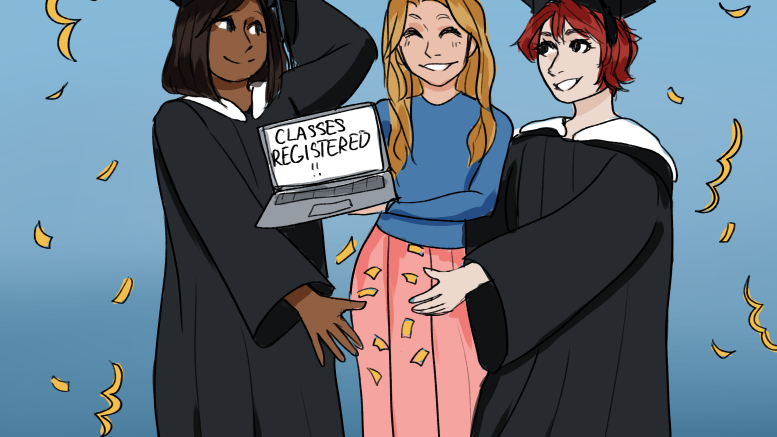Graduation — a constant source of misery and concern for me. The idea of needing to have your life figured out enough to know exactly what you want to do after university frightens me.
I have always been a ‘jump first and ask questions later’ kind of person. I often take life one day at a time, never really planning.
Even when I went to Ireland, I never planned out which hostel or hotel I would stay at more than 1 day in advance. Now I know this may give people who like to plan a tad bit of anxiety. But, in all honesty, I have always lived my life in the moment.
When we were young, our parents told us to reach for the stars, our interests were often encouraged, and the belief that we could do any job we wanted was a supported ideal.
Now, what’s encouraged is to dream realistically and pick a safe career path – one that offers some stability and security, rather than a passionate but risky pursuit.
My problem has always been that I have never had anything figured out, including my schooling. My journey with school has always been unnavigated. Imagine you’re a sailor, but you have no compass and no map and are blindly trusting your instincts.
Due to my own self-destructing habits of never planning, I have trudged through university with a mentality of figuring out life as you go, which, in retrospect, has definitely led to my extended time at the U of M.
Even though my long sentence served at the U of M has been self-imposed, I always feel disappointed when I see my graduating friends waving on stage while I sit in the sea of people watching, feeling like I am never going to graduate.
It is okay to take a little longer to finish your degree. I’d like to make that clear. There is a misconception that you should finish your degree within four years, and I know a lot of people still believe you should.
In all honesty, it’s challenging to take five classes every semester, as people often opt to take four to reduce their course load.
According to Statistics Canada, in the 2014-15 school year, 137,271 students between the ages of 15 and 19 years old were in the studied cohort, with an average time spent in an undergraduate program of 4.72 years.
Despite the average time for Canadian students finishing a university degree being closer to five years, there is still an expectation that an undergraduate degree should be completed within four years.
There might be multitudes of reasons why someone may not graduate within the allotted four years. It could be mental health issues, high financial need or family issues. There are varying circumstances may prevent someone from finishing a degree in the expected four years.
Maybe expectations are unrealistic because some people view getting a university degree as a twisted form of competition, even though there’s absolutely no award for finishing a degree faster than everyone else.
I think it’s okay not to know exactly where you’re headed in life. Maybe it’s the unpredictability of where you’re heading that makes life so interesting. My advice to anyone reading this column would be to pursue your degree at your own pace, never try to fit into the expectations that others have for you and lose track of what you really want, both in life and in your degree.



